This is considered a step forward to improve professionalism and transparency in human resource organization at higher education institutions.
From the effectiveness of guest lecturers
On June 24, Ho Chi Minh City National University approved a list of 21 qualified candidates to participate in the third round of the 2025 Visiting Professor Program. Notably, 17 professors specializing in cutting-edge fields such as information technology, artificial intelligence (AI), semiconductor chips and mathematics. These professors come from countries with developed science such as the UK, France, Canada, Japan, South Korea, Australia and Singapore.
The appointed professors will directly participate in teaching and research at member and affiliated units of Ho Chi Minh City National University. Up to now, after 3 implementation phases, the Visiting Professor Program of Ho Chi Minh City National University has attracted a total of 49 professors from many countries and territories. According to the plan, the program aims to appoint 100 visiting professors in the period 2025 - 2030, of which 50 professors will be invited and appointed in the first two years (2025 - 2026).
Previously, the University of Health Sciences (Vietnam National University, Ho Chi Minh City) has made a strong step in building its teaching staff. The school has issued 80 decisions to assign the duties of heads and deputy heads of departments. Nearly 30 of these people are directors, deputy directors, directors of research institutes and former leaders of the Ho Chi Minh City Department of Health .
Many doctors holding leadership positions at major hospitals were also invited to take charge of departments of the Faculty of Medicine and the Faculty of Pharmacy. By April 2025, the school continued to award appointment decisions to four new department heads, who are currently holding the positions of hospital directors or deputy directors.
Associate Professor, Dr. Vu Hai Quan - Director of Ho Chi Minh City National University, commented that the University of Health Sciences is facing five major difficulties: thin human resources; slow integration of new science and technology into the training program; no practice hospital; requirement to train students with good medical skills and strong medical ethics; and the gap in training quality between medical and pharmaceutical universities.
To overcome this, the school has identified focusing on postgraduate training as one of the breakthrough solutions. This solution requires close cooperation between the school and hospitals, not only in training but also in scientific research.
The call for and use of prestigious and experienced guest lecturers at Ho Chi Minh City National University has shown clear effectiveness in the staff development strategy of higher education institutions, contributing to improving the quality of human resources in the system. Regulations on guest lecturers allow schools to be flexible in recruiting and assigning tasks, helping to meet training needs in the context of a shortage of high-quality lecturers.
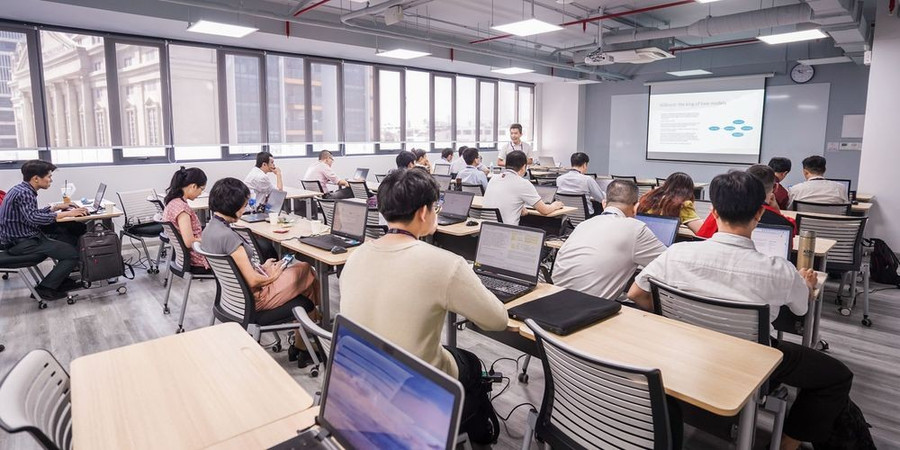
Expectations from “fellow faculty”
Article 30 of the Draft Law on Higher Education (amended) being developed by the Ministry of Education and Training has added the concept of "co-tenant lecturer", in addition to the positions of permanent lecturer, guest lecturer... According to the definition in the draft, co-tenant lecturer is an official of another agency or organization, with professional qualifications appropriate to the profession and training field and is assigned by a higher education institution to teach as a permanent lecturer, for a period of 1 year or more.
In addition, the Draft Law separates and clarifies the concept and position of lecturers. The Draft clearly states that lecturer positions are classified according to labor relations, including: full-time lecturers, joint-time lecturers, guest lecturers and post-retirement contract lecturers.
Also in this draft law, professor is defined as the highest title in the university lecturer system, demonstrating capacity, prestige and role in leading expertise, research and knowledge innovation. Associate professor is the next title, with appointment forms including: tenured, co-tenanted, guest lecturer according to case contract or labor contract.
According to leaders of several universities and education experts, in addition to guest lecturers, the new regulation on “joint lecturers” will create a solid legal corridor, helping universities to be more flexible in arranging and using their teaching staff. At the same time, this is also a clear legal basis for higher education institutions to attract, use and develop high-quality human resources.
According to Associate Professor Dr. Nguyen Vu Quynh - Vice Principal of Lac Hong University (Dong Nai), currently, the teaching staff at universities in Vietnam mainly consists of two types: permanent and guest lecturers. The draft Law has added a legal basis for three types of lecturers including permanent, co-permanent and guest lecturers, this is a positive step towards increasing professionalism and flexibility in personnel organization.
At the same time, the clear distinction between professional and academic titles in the draft Law on Higher Education (amended) is appropriate in terms of management. However, according to Mr. Quynh, to truly bring about convenience without creating difficulties in management and quality control, it is necessary to clearly define the criteria, responsibilities and commitments for each type of lecturer.
According to Associate Professor Quynh, counting visiting or co-tenant lecturers with the title of professor or associate professor into the teaching staff to determine enrollment targets, especially at the postgraduate level, is completely in line with current regulations and helps improve training quality.
However, to ensure sustainability, training institutions need to control the proportion of guest lecturers within the prescribed limits. At the same time, it is necessary to ensure that these lecturers fully meet the legal standards and professional capacity according to the Law on Education and guiding documents; build a transparent management, assignment, evaluation and remuneration mechanism for each type of lecturer. This is to avoid the situation of using elderly lecturers with academic titles but little real contribution just to deal with accreditation or attract students.
According to current regulations, the ratio of permanent lecturers must reach a minimum level to ensure the quality of university training. However, in recent times, many universities have only signed contracts with guest lecturers in name only to meet the conditions for opening majors or maintaining training programs, while in reality these lecturers are not directly involved in teaching. This is an issue that arises when the Draft Law on Higher Education (amended) adds the position of co-permanent lecturers.
From the perspective of an education expert, Dr. Le Dong Phuong - former Director of the Center for Higher Education Research, Vietnam Institute of Educational Sciences, said that the management of teaching staff at all positions can be completely controlled if technology and digital data are increased. At that time, lecturer profiles will be synchronized, helping to clearly identify where lecturers are teaching and whether schools are following the regulations or not.
According to Mr. Phuong, the upcoming policy of the Ministry of Education and Training is to switch from pre-control to post-control in the work of opening training programs. This forces universities to improve accountability and ensure transparency in the use and allocation of teaching staff.
According to Associate Professor Dr. Nguyen Vu Quynh, it is necessary to build a fair and transparent management, evaluation and remuneration process in the use of permanent lecturers, co-permanent lecturers, guest lecturers... This helps universities take advantage of diverse human resource models while still ensuring control of training quality.
Source: https://giaoducthoidai.vn/quy-dinh-giang-vien-dong-co-huu-loi-giai-cho-bai-toan-nhan-su-post743079.html


![[Photo] The 1st Congress of Phu Tho Provincial Party Committee, term 2025-2030](https://vphoto.vietnam.vn/thumb/1200x675/vietnam/resource/IMAGE/2025/9/30/1507da06216649bba8a1ce6251816820)

![[Photo] Panorama of the cable-stayed bridge, the final bottleneck of the Ben Luc-Long Thanh expressway](https://vphoto.vietnam.vn/thumb/1200x675/vietnam/resource/IMAGE/2025/9/30/391fdf21025541d6b2f092e49a17243f)
![[Photo] President Luong Cuong receives President of the Cuban National Assembly Esteban Lazo Hernandez](https://vphoto.vietnam.vn/thumb/1200x675/vietnam/resource/IMAGE/2025/9/30/4d38932911c24f6ea1936252bd5427fa)
![[Photo] Solemn opening of the 12th Military Party Congress for the 2025-2030 term](https://vphoto.vietnam.vn/thumb/1200x675/vietnam/resource/IMAGE/2025/9/30/2cd383b3130d41a1a4b5ace0d5eb989d)
![[Photo] General Secretary To Lam, Secretary of the Central Military Commission attends the 12th Party Congress of the Army](https://vphoto.vietnam.vn/thumb/1200x675/vietnam/resource/IMAGE/2025/9/30/9b63aaa37ddb472ead84e3870a8ae825)
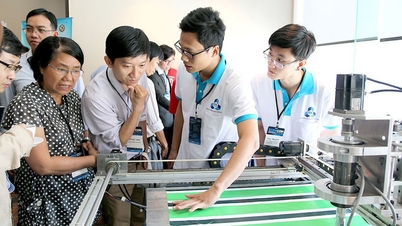

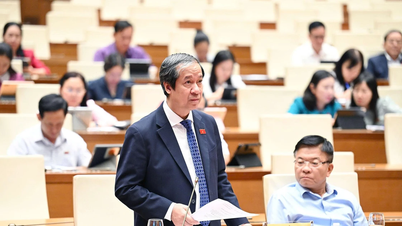

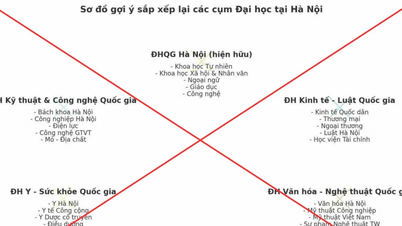

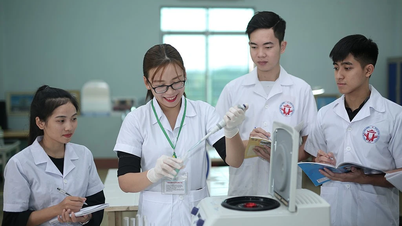








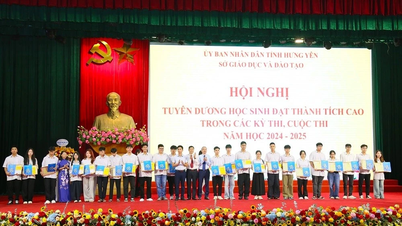






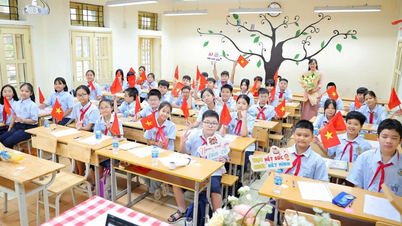

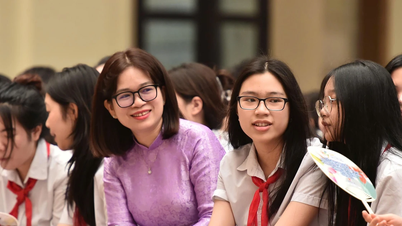
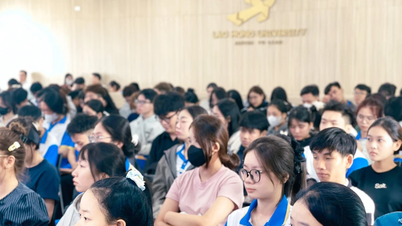




















































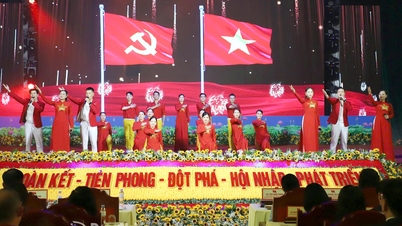

















Comment (0)